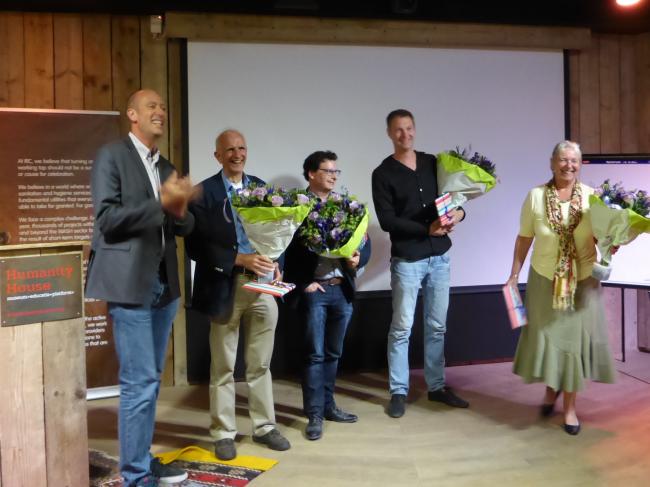You must know about the culture and beliefs of communities before co-creating solutions with them.
Published on: 22/07/2015

Why is it so difficult for the water, sanitation and hygiene (WASH) sector to adopt a more sustainable and cost-effective service delivery approach? What is stopping the scaling-up of promising approaches and good practices? Some experts believe the answer lies in a better understanding of the culture, attitudes and values of both communities and WASH sector staff. IRC invited four of these experts on 18 June 2015 to the Humanity House in The Hague for a seminar on 'The human factor in WASH change processes: Drivers for change among staff of WASH sector organisations'.
Maarten Onneweer from RAIN explained how local NGO staff struggle to translate concepts, mostly developed in the North or in the capital city, into practice. Onneweer found that water projects were often developed without taking similar, previous interventions and experiences into consideration. Also, local WASH professionals tend to work in an environment in which their projects offer opportunities for people to earn some money "on the side", like the school director who resells the cement meant for toilet construction. This has an effect on how local professionals engage with the communities. The full presentation is available in the resources section below.
Luuk van Kempen (post-doc researcher and lecturer at Radboud University) discussed what causes resistance to change or the failure to scale-up promising approaches:
The full presentation is available in the resources section below.
Vida Duti, director of IRC Ghana, participated virtually. She shared three stories with the audience. Her first story highlighted the importance of knowing the culture and beliefs before moving into co-creating solutions with a community. Appreciating and knowing what is already in place, was also the main lesson she shared in her other two stories. 'For us the lesson that we learned, was that, when you enter into a sector, from an appreciative enquiry point, appreciating that people have done things, and that you are there to add on and work together with them to improve on what is already there, people become more receptive and are ready to work with us. People also become more receptive when there is clarity from the beginning on the end state. And together with them you co-create the solutions'
As development practitioners we go into support people with the objective to move them from one situation to an improved end. But in doing so, do we really take into account the people's pasts? Why they live the way they do? Their attitudes? Their culture?...and do we really respect these and ensure that they are factored into whatever solutions we jointly create with them?
Jo Smet closed the seminar by looking back to his 36 years working in development. A Dutch missionary, who visited his village and showed movies, inspired Jo to work in the development sector in Africa. In his presentation, Jo highlights the cultural barriers that prevent people to change behaviour. In the eighties and the early nineties development programmes were still very much focused on output, but Jo always tried to incorporate cultural aspects in his work.
Jo concluded with four main take away lessons:
See Jo's full presentation in the resources section below.
Madeleen Wegelin, seminar facilitator, concluded the event with a round of questions and a debate. She identified four common themes from the presentations: